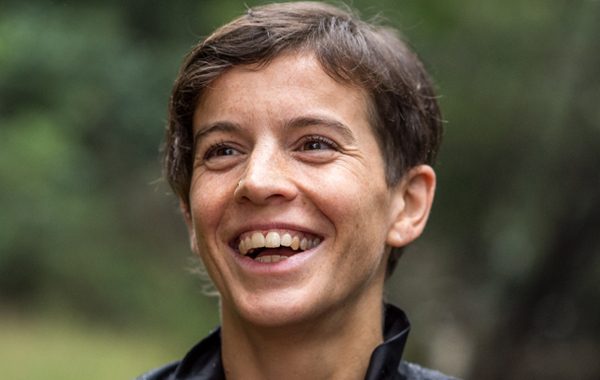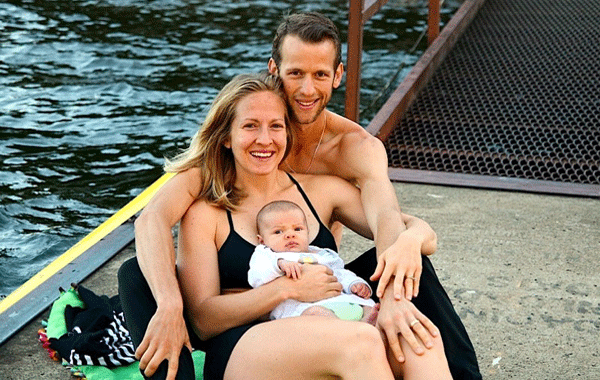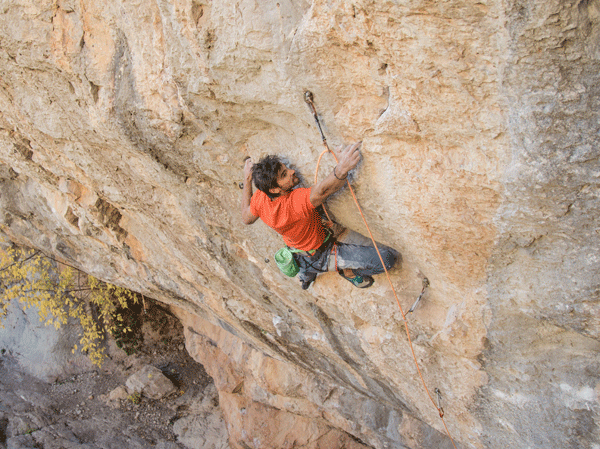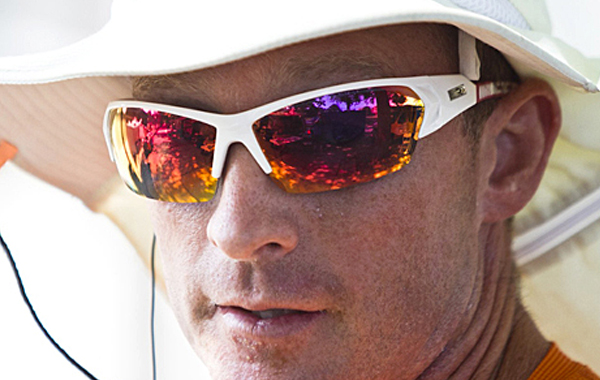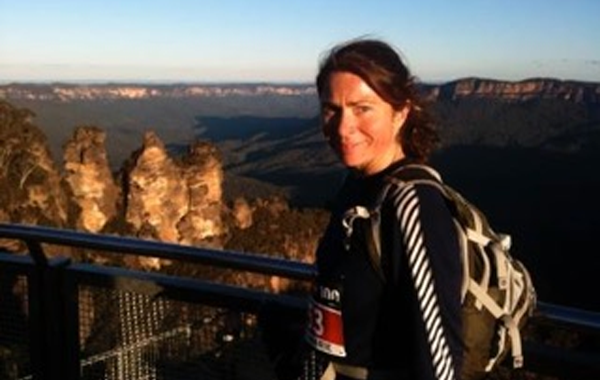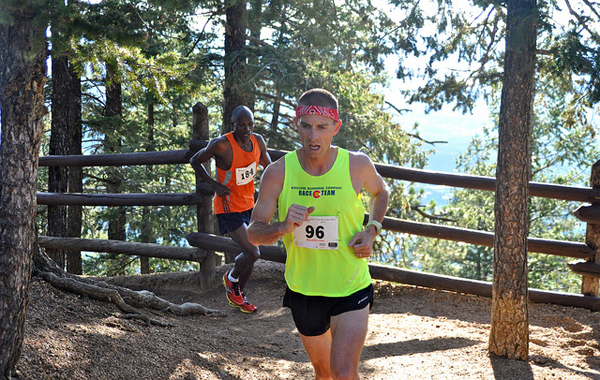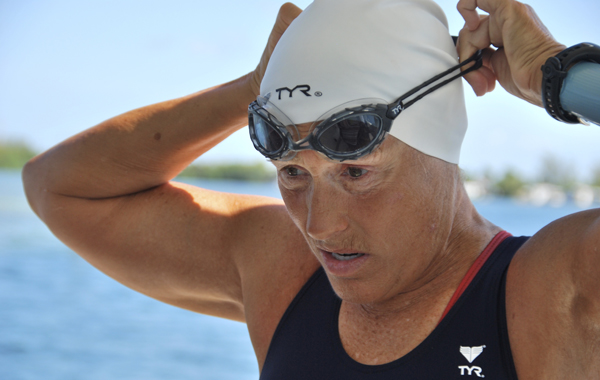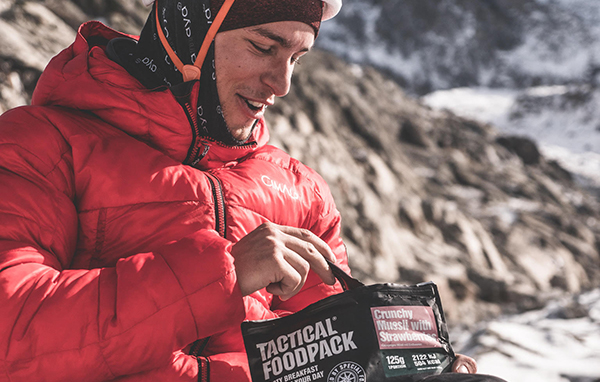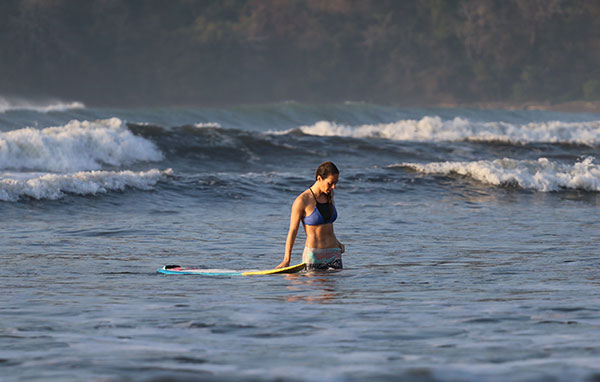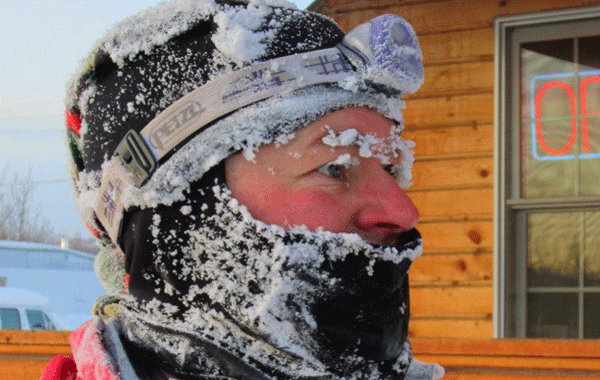
Derrick Spafford has over 30 years of competitive running and coaching experience.
DERRICK SPAFFORD has dedicated much of his life to training for and competing in long-distance running races. From marathons to a 100-mile race through the Arctic his achievements and experiences will inspire any with an interest in the sport of ultra-running.
As well as pushing his own body and mind to achieve his best in the races and challenges he has entered, Derrick also takes great pleasure in coaching others to help them realise their potential and achieve as much as they possibly can in the sport.
In this interview he gives us an insight into his website, www.healthandadventure.com, and the other work he does including volunteering, organising races and writing.
Derrick has immersed himself in everything running can offer and his lifestyle and positivity will provide food for thought for anyone with a sporting or adventure hobby.
When did you first become passionate about running and what have been some of your biggest successes in the sport?
I began running and racing year round in 1982 when I discovered that I enjoyed the off-ice training and conditioning for hockey more than the hockey itself. I grew up on a farm and enjoyed running on the trails before I even began real training and competing in races.
I have never felt that I was a runner with a lot of natural talent, but one of the things that I really liked about running is that you could make up for some of those shortcomings by consistent, hard training. This seemed to be especially the case with the longer the distance too. I remember being very happy when I ran a 4:28 for the mile when I was younger, but never felt like I ran as fast for distances up to the marathon as I should have been able to. My longer races of 100 miles are probably where I’ve actually competed well at a higher level.
I’m not sure if I’d call it a success, but I do have a long running streak. I have run every day since December 25, 1989. Since I’ve focused more on ultra marathon training, my average daily distance each year is usually in the 90 minutes to two hours range per day.
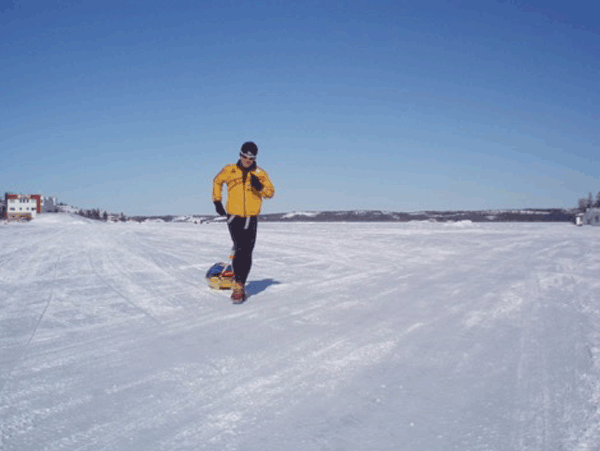
Derrick has competed in and been placed twice in the Yukon Arctric Ultra 100 Mile Race in which runners have to pull all of their survival gear in a sled.
You’ve competed in all types of races from ultramarathons to short distance runs in all kinds of climate. Could you tell us about some of your personal highlights and the toughest challenges you’ve faced?
I seem to have had some of my best races when I finished in second place in a race for some reason. I’m okay with that though as I would always rather run to the best of my potential in a difficult race with good competition that pushed me to my best, than to win a race in a slower time where I didn’t push as hard.
Finishing second in the Ontario Shore Marathon was pretty cool as I actually won cash in a road race, which surprised me. It was funny because I got one of those big cheques that they hand to you for photos. I think I still have it.
Winning the first 100 mile race I ever entered at the 2008 Haliburton Forest 100 miler left me with a strong sense of satisfaction, and then coming back the following year with the goal of trying to break the course record. I ended up breaking the old course record in 2009, but finished second in the race with the second fastest time ever run on the course.
The Yukon Arctic Ultra 100 Mile Race (billed as the World’s Coldest and Toughest Race) takes place in the winter in Northern Canada, and was a race that took me that much more out of my comfort zone. Runners are required to pull all of their survival gear, mandatory gear, food and water in a sled (pulk). There are only two checkpoints in the race, so you are really out there on your own and need to be well prepared for the conditions since help could be hours away from getting to you if you got into trouble. I finished second the first year I ran it in 2012, in what was the second fastest time ever run for the 100 miler. I went back in 2013 to hopefully run faster, but ended up getting very sick during the race with a stomach flu and fever and had to sleep along the side of the trail for a few hours. I eventually finished the race that year, but in a very slow time. In some ways, I am more proud of that second race as I was able to persevere and never considered quitting, even though I was not going to be anywhere near the goal I had set for myself beforehand.
When did you decide to get involved in coaching and where has this career taken you?
I’ve coached at various levels since the late 1980s, including track clubs, high school and college track and cross country, MUTS runners (Mountain, Ultra, Trail & Snowshoe) of all ability levels, but also beginning runners who are just getting into the sport. Some of the athletes I’ve coached have represented Canada at international competitions at a very high level, but I take just as much satisfaction and pride out of seeing a new runner improve to the point where they are excited about getting out and enjoying their first real trail run.
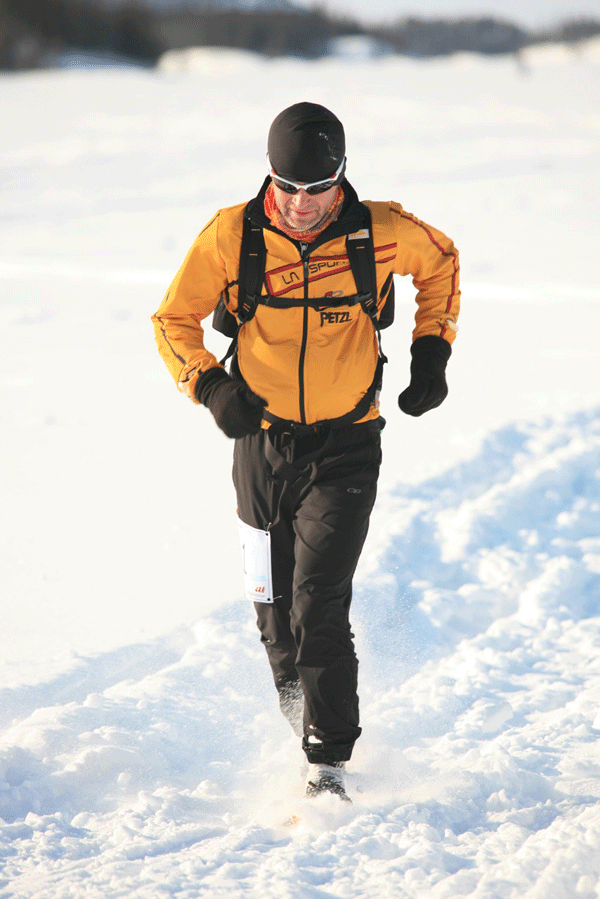
Derrick has set up Spafford Health and Adventure which offers coaching and specialist products as well as other running services.
Tell us more about Spafford Health and Adventure and what’s the core message you try to instil on those who come to you for guidance?
As I mentioned, I enjoy coaching runners of all ability levels and love to match the most appropriate training schedule for them based on their background, work/family commitments, goals, and strengths/weaknesses. No two runners are the same, and I find it fascinating to piece together the training I feel will get them the best results based on the information I am provided from them, in addition to what I think will work best for them as a result of my education, research and trial and error as an athlete and coach.
The key points I try to make sure athletes buy into is that you need to enjoy the training. If you enjoy it, you’ll be consistent. If you’re consistent, with a progressive, well designed training program, you will get the results are looking for.
Tell us more about Spafford Health and Adventure and what our visitors can expect from the website?
There are five elements to Spafford Health and Adventure (www.healthandadventure.com):
• Coaching: I offer running coaching for runners of all ability levels.
• Race director: organise trail and snowshoe running races.
• Sales: Online specialty store. I only sell gear (or accept sponsorships) from products that I have fully tested and believe to be the best on the market.
• Writing: I have written articles for numerous running and outdoor publications, and am a regular contributor to Canadian Running Magazine.
• Volunteering: I volunteer and have supported a number of organisations, charities and individuals. I include this as part of my business model, as I feel it is important to give back to the community that supports you. I also find it very rewarding and inspiring. I am currently heavily involved with supporting www.impossible2possible.com Youth and Experiential Learning Programs.
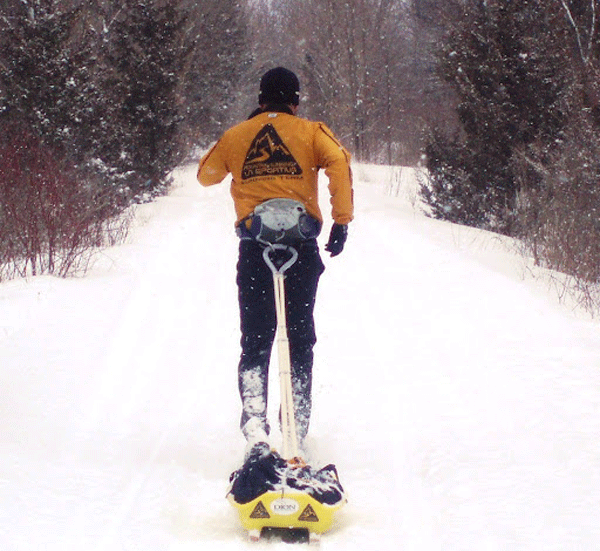
Derrick pulling his sled or ‘pulk’ which is a requirement of competitors of the Yukon Arctric Ultra 100 Mile Race.
What are your interests and passions outside of the world of running?
I grew up playing hockey from a young age, and am still a passionate Boston Bruins fan to this day. I love the outdoors. My wife Sara (also an ultra runner) and I spend as much time outside as possible. I’ve competed in dog sled races, which actually inspired me to compete in some of the more expedition type running races in recent years. I’ve also taught myself to play some traditional (mostly Irish) instruments including mandolin, tin whistle, bodhran, guitar and a little bit of fiddle.
What new exciting projects and challenges do you have planned for 2016 and beyond?
I always look forward to the different running seasons and years, and planning ahead. I actually turn 50 in March so I find myself getting excited about different opportunities that may bring. On one hand, I sometimes think it would be fun to go back and run some shorter distances and try to run faster on the track or shorter cross country races, but I expect that I’ll be looking more towards longer races in more remote areas. I really enjoy expedition type winter races, and see myself possibly moving away from actually racing as much, and get more into doing expeditions in the future.


